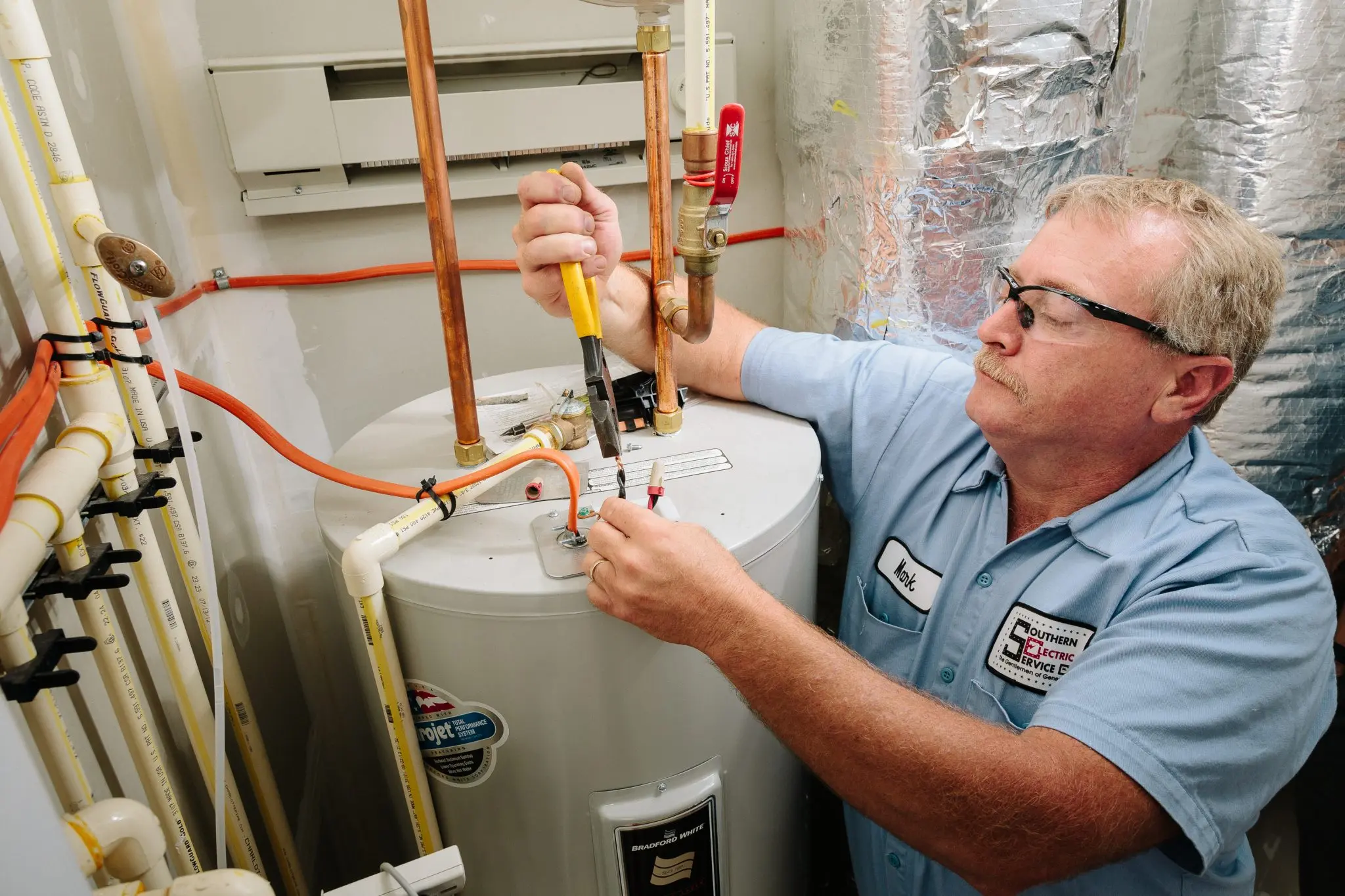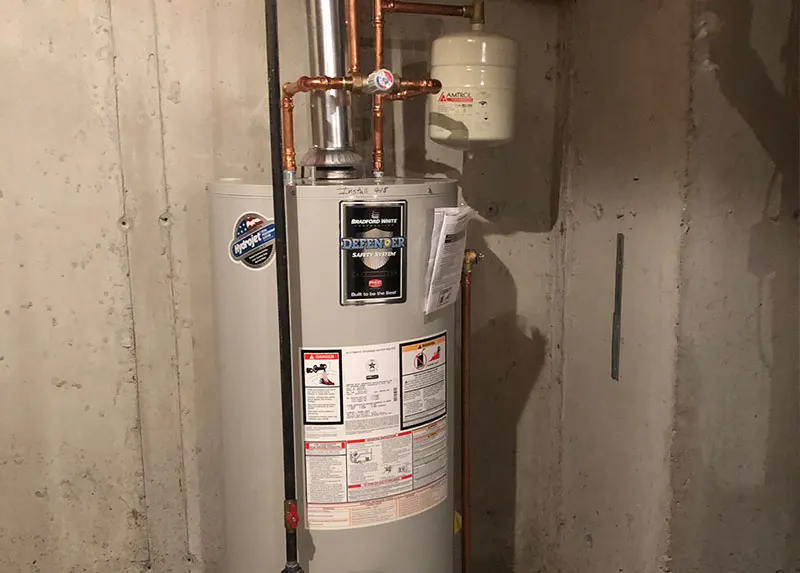Experienced Plumber Denton Offering 24/7 Plumbing Services
Experienced Plumber Denton Offering 24/7 Plumbing Services
Blog Article
Complete Overview to Water HeaterSetup and Substitute
Understanding the complexities of water heating system installation and replacement is critical for homeowners seeking to make sure efficiency and dependability in their warm water supply. From picking the appropriate kind and dimension to implementing a seamless installation process, a number of aspects must be considered to prevent typical risks. This overview will certainly give you with the necessary steps and insights to browse the intricacies of this home renovation job, while additionally stressing critical maintenance methods that can extend the life of your system. As you check out these aspects, you may locate yourself reassessing your current setup and identifying areas for renovation.
Kinds Of Hot Water Heater
When thinking about water heating unit installment and replacement, it is important to understand the numerous sorts of water heaters available in the market. One of the most typical types include tank hot water heater, tankless water heating units, heat pump hot water heater, and solar water heating units.
Storage tank water heaters are typical systems that keep a specific volume of warm water, making them easily available when required. They are generally much less pricey ahead of time however might incur greater energy expenses in time as a result of warm loss. In comparison, tankless hot water heater provide warm water as needed, removing the need for storage space. They are power reliable and can conserve room, however their first expenses are typically greater.
Warmth pump water heating units utilize electrical energy to transfer warm from the air or ground to warmth water, offering considerable power financial savings but needing even more space and particular setup problems. Last but not least, solar hot water heater harness solar power to warmth water, giving an environmentally friendly choice with possible long-term cost savings, although they commonly require a backup system for gloomy days.
Recognizing these alternatives makes certain notified decisions concerning installation and substitute, accommodating certain needs and preferences.
Picking the Right Size
Selecting the appropriate dimension for a water heating unit is important to guarantee optimum efficiency and effectiveness. An unit that is also little will battle to fulfill family demands, bring about inconsistent warm water availability and enhanced power usage. Alternatively, a large hot water heater can cause unneeded energy waste and greater energy expenses.
To establish the ideal size, take into consideration the home's optimal warm water use. This can be determined based upon the number of occupants and their typical warm water requirements. A household of 4 might require a water heating unit with a capacity of 50 to 80 gallons, depending on the use patterns, such as synchronised showers and laundry.
Furthermore, assess the recovery price, which gauges how swiftly a heating system can replenish warm water after it has been utilized. For tankless versions, emphasis on the flow rate, measured in gallons per min (GPM), to ensure it satisfies the house's simultaneous need.

Installation Refine Summary

Next, the old unit has to be detached and removed, taking treatment to adhere to regional codes and policies concerning disposal. As soon as the old system is out, the new hot water heater can be positioned in position. This step entails connecting the water system lines, guaranteeing that all installations are leak-free and safe and secure.
After establishing water links, it's vital to link the power supply, whether electric or gas, complying with the supplier's instructions diligently. Once all connections are made, the system needs to be filled up with water, and the power can be transformed back on. Finally, it's crucial to look for leakages and guarantee the hot water heater is functioning properly prior to finishing the installation process.
Common Setup Mistakes

Another regular blunder is neglecting to follow regional codes and guidelines. Failing to adhere to these requirements can not only lead to security threats yet may also result in expensive fines or the requirement for expensive reinstallation.
Wrong pipes links are additionally a widespread mistake. Failing to secure connections or making use of the wrong type of fittings can lead to leaks and water damage. Additionally, neglecting the value of a correct drainpipe frying pan can lead to considerable water damage if leaks do happen. Finally, insufficient insulation of pipes can lead to heat loss, decreasing efficiency. By staying clear of these common installation blunders, property owners can ensure their water heater operates safely and efficiently, optimizing performance and longevity.
Upkeep Tips for Durability
Correct upkeep of a hot water heater is vital for its longevity and optimal efficiency. Regular examinations and servicing can protect against expensive repairs and prolong the appliance's life expectancy. Begin by checking the temperature setting; it must generally be established in click to investigate between 120 ° F and 140 ° F for ideal power efficiency and security.
Every 6 months, flush the tank to eliminate debris buildup, which can hinder heating performance and cause rust. To do this, transform off the heater, link a hose to the drain shutoff, and let the water run up until it is clear.
Anode poles should be examined every year and changed when they are rusted. These poles help avoid storage tank deterioration by bring in corrosive elements in the water.
Additionally, inspect the stress alleviation shutoff consistently to ensure it is functioning correctly. This valve is crucial for protecting against excessive pressure buildup within the storage tank.
Lastly, take into consideration setting up a specialist upkeep check every couple of years for comprehensive evaluations and servicing. By sticking to these maintenance pointers, property owners can significantly boost the effectiveness, security, and life expectancy of their hot water heater, guaranteeing reputable warm water for years to find.
Conclusion
In recommended you read verdict, proper installment and maintenance of water heaters are crucial for making certain performance and durability. By recognizing these vital facets, home owners can attain a trusted hot water supply while decreasing potential problems related to water heater procedure.
Understanding the ins and outs of water heating system installation and substitute is crucial for house owners looking for to guarantee performance and integrity in their hot water supply.Storage tank water heating systems are typical systems that keep a details quantity of hot water, making them easily offered when required. In comparison, tankless water heating units give warm water on demand, eliminating the requirement for storage space. Picking a water heating system that is either too little or as well huge can lead to inefficiencies, resulting in inadequate hot water supply or excessive power intake.
By recognizing these important elements, property owners can accomplish a reliable warm water supply while decreasing potential concerns related to water heater procedure. plumber Denton.
Report this page